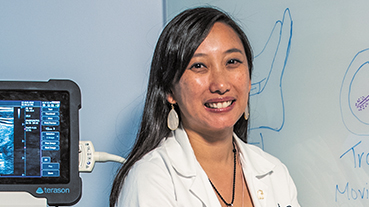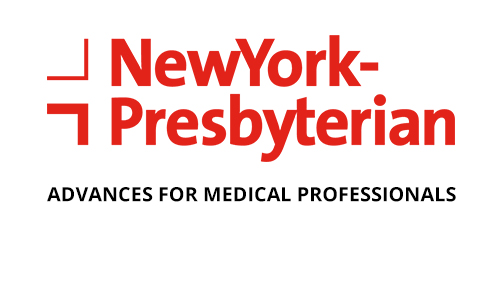Exploring Novel Treatments for Thyroid Cancer

Dr. Thomas J. Fahey, III
“Endocrine surgery is a fascinating discipline that allows the integration of surgery and medicine in one field,” says Thomas J. Fahey, III, MD, Vice Chairman of the Department of Surgery, Chief of Endocrine Surgery, and Director of the Endocrine Oncology Program at Weill Cornell.
“Most thyroid cancers are indolent and curable with standard treatments such as surgery, radioactive iodine therapy, and thyroid stimulating hormone suppression therapy for localized or regional disease. However, patients with thyroid cancer can have widely different clinical outcomes depending on the pathological subtype. Some 5 to 10 percent of patients develop progressive disease that is metastatic and refractory to current treatments.”
Dr. Fahey has long maintained a laboratory investigating the biology of endocrine tumors. “We have been at the forefront of the incorporation of molecular diagnostics into the diagnosis and management of patients with thyroid nodules and thyroid cancers,” he says. “Our lab was the first to identify the use of gene expression analysis to discriminate benign and malignant thyroid nodules. With the development of the precision medicine board here at Weill Cornell Medicine, we have the opportunity to completely sequence tumors that require additional treatment. More recently, our researchers have focused on novel treatments for advanced thyroid cancers.”
CAR T Therapy
Poorly differentiated thyroid cancer and anaplastic thyroid cancer (ATC) are rare yet lethal malignancies with limited treatment options. Dr. Fahey and Irene M. Min, PhD, Assistant Professor of Molecular Biology Research in Surgery at Weill Cornell Medicine, are pursuing investigations with Moonsoo Jin, PhD, in the Department of Radiology on the development of CAR T therapy for these cancers.
Advanced, metastatic thyroid cancers have increased expression of ICAM-1, and so the researchers developed a CAR T therapy targeting ICAM-1 for the treatment of aggressive thyroid cancer. The results of their study, which were published in Clinical Cancer Research, demonstrated the significant and durable efficacy of ICAM-1 CAR T for targeting anaplastic thyroid cancer.

Representative ICAM-1-specific IHC images of anaplastic thyroid cancer (ATC) patient-derived tissue. Well-differentiated papillary thyroid cancer (WDPTC) or normal thyroid tissue images on the same slide are shown for comparison on the right.
“Furthermore, we showed that autologous ICAM-1 CAR T cells have significant therapeutic efficacy in animal models bearing ATC patient-specific tumors,” says Dr. Fahey. “Our CAR T-cell-based immunologic approach has potentially wide-ranging applications for the treatment of other solid cancers where there is a strong association between ICAM-1 expression and adverse prognosis. The process is always slower than you expect it to be, but we’re hoping to have FDA approval to start a phase 1 clinical trial in the near future to look at the efficacy of this very novel treatment.”
Clinical Trial for Advanced Thyroid Cancer
The Endocrine Oncology Program in the Department of Surgery at Weill Cornell Medicine will soon be opening a clinical trial testing a novel treatment for patients with advanced thyroid cancer. If you are interested in learning more about the trial, contact Dr. Fahey at [email protected].
New Avenues of Research A small percentage of patients with metastatic differentiated thyroid cancer do not respond to radioactive iodine treatment and thyroid-stimulating hormone suppression. In these patients, there is still an option: targeted tyrosine kinase inhibitors. “Tyrosine kinase inhibitors now are being utilized in the treatment of previously treated refractory thyroid cancers and have certainly opened up new avenues for both treatment and further research,” notes Dr. Fahey. “The future will be to look at their ability to impact the redifferentiation of thyroid cancers to permit them to uptake radioactive iodine, a mainstay of adjuvant treatment for the routine thyroid cancer. We have been exploring potential ways to reestablish or reactivate that sodium iodine import mechanism in the lab. If we can reactivate the iodine uptake, then we can make a treatment, which as far as adjuvant treatments go is one of the safest in general, once again an option for these patients.”
“Our lab has evolved from looking at the differential expression of genes and proteins for differentiation of benign and malignant tumors to now also utilizing the information to identify therapeutic targets for more advanced thyroid cancers.”
— Dr. Thomas J. Fahey, III
Dr. Fahey and his colleagues are also interested in anticancer therapy-induced autophagy, which can trigger adaptive drug resistance in a variety of cancer types and treatments. In a multi-institutional collaborative study, the Weill Cornell investigators have explored if autophagy is activated in vemurafenib-treated BRAF-mutant thyroid cancer cells, and whether autophagy inhibition improves or impairs the treatment efficacy of vemurafenib, a cancer growth blocker. The combined effects of autophagy inhibitor and vemurafenib were assessed in terms of cell viability in vitro and tumor growth rate in vivo. The results of the study, published in the Journal of Clinical Endocrinology Metabolism, demonstrated that vemurafenib induces endoplasmic reticulum stress response-mediated autophagy in thyroid cancer and that autophagy inhibition may be a beneficial strategy to sensitize BRAF-mutant thyroid cancer to vemurafenib.
Reference Articles
Min IM, Shevlin E, Vedvyas Y, Zaman M, Wyrwas B, Scognamiglio T, Moore MD, Wang W, Park S, Park S, Panjwani S, Gray KD, Tassler AB, Zarnegar R, Fahey TJ 3rd, Jin MM. CAR T therapy targeting ICAM-1 eliminates advanced human thyroid tumors. Clinical Cancer Research. 2017 Dec 15;23(24):7569-83.
Wang W, Kang H, Zhao Y, Min I, Wyrwas B, Moore M, Teng L, Zarnegar R, Jiang X, Fahey TJ 3rd. Targeting autophagy sensitizes BRAF-mutant thyroid cancer to vemurafenib. Journal of Clinical Endocrinology Metabolism. 2017 Feb 1;102(2):634-43.
Related Publications

Interventional Endocrinology: An Emerging Specialty

Dr. Laura Alonso New Chief of Endocrinology at Weill Cornell





